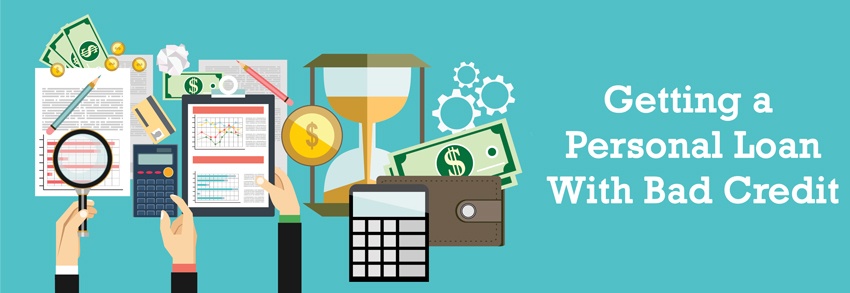Getting a Loan With Bad Credit – Things To Avoid
The first thing to know about getting personal loans for a credit score under 550 is that not all loans are good loans. A credit score of 579 or less is considered poor. As stated, a lower credit score means you’ll be looking at higher interest rates, and some loan providers take advantage of potential borrowers who want loans fast. Take your time when you’re searching for a loan, and don’t jump at the first offer that seems too-good-to-be-true (because it probably is). If you need help checking your credit score, it can be done for free.
Precomputed Interest
One common trap personal loan borrowers fall into is precomputed interest. Simply put, precomputed interest is a method some lenders use to ensure you’ll pay a full term’s worth of interest on your loan, even if you pay it off early.
For example, if you take out a loan with a 36-month term, interest will accrue each month for those three years until the principle is paid off. However, if you get a bonus at work, and you want to pay off the entire loan after only 28 months, you can do so and avoid paying those additional 8 months of interest. This can result in a hefty amount of savings.
With a precomputed, or “precompute” loan, the total amount of interest you would pay over those 36 months is calculated (precomputed) up front and added permanently to the principal balance. Even if you pay off your loan early, you’re responsible for paying the full 36 months’ worth of interest.
A good rule of thumb is this: if you see the words “precomputed interest” anywhere on your loan terms, even it’s advertised with the misleading tagline “no prepayment penalty”, don’t sign.
Prepayment Penalties
While precomputed loans are an indirect way of charging a prepayment penalty, many loans directly charge a penalty if you want to pay off your loan before the end of your term. Prepayment penalties are rare, and most lenders don’t include them in their terms, but it’s always wise to ask.
Upselling
The best way to go getting personal loans for a credit score under 550 is planning ahead. However, many lenders will attempt to derail you during closing by upselling additional services like insurance. Watch out for sales pitches for services that tack on extra charges to your monthly bill—life insurance and unemployment insurance are the most common ones—even if they come at a “special discount”.
Origination Fees
Be wary of origination fees. An origination fee is essentially a fee for borrowing money, but many lenders do not require a fee up front since they make their money through the interest payments. An origination fee is just going to make the loan more expensive and should be avoided when possible.
Tap Friends and Family
A simple way to avoid the pitfalls of borrowing from larger corporations, including hidden fees, penalties, and upselling, is to borrow from someone you know and trust. Borrowing money from a friend or family member isn’t always a smart option—it can damage your relationship if you’re not truly prepared to pay back the loan. But if you have a strategy in place, you’re willing to pay interest to your friend or family member, and you can even devise a contract for you both to sign, you can save money and a lot of hassle.
Enlist a Cosigner
Another way your loved ones can help out when it comes to getting personal loans with a credit score under 550 is by cosigning your loan. When they cosign your loan, your family member agrees to make payments on the loan if you fail to do so. Having a cosigner can help you get a more reasonable interest rate, or even get a personal loan when you would otherwise have been denied. Again, enlisting a family member as a cosigner can damage relationships if you’re not careful, so make sure you’re not in a position to miss loan payments.
Low-Credit Loans from Credit Unions
When friends and family aren’t the best option, your next choice should be your local federal credit union. Credit unions generally have lower interest rates than larger banking institutions, and they’re easier to work with when you’re paying off your loan. Federal credit unions offer more flexible loan terms and a maximum annual percentage rate of 18%.
Pre-Qualify and Compare
If an online lender is your only option, the best first step to take is to apply for prequalification and compare different loans. Sites like the ones below have tools available to help you estimate how much you can expect to be approved for and at what rate, but you won’t really know until you prequalify.
Prequalification does not have an impact on your credit score, so you can apply for several different personal loans worry-free. You’ll get a personalized quote for each loan you apply for, which will give you a much better idea of which one is right for you, rather than relying on advertising alone.
Best Personal Low-Credit Loans
When you’re ready to prequalify and compare loans, try these lenders:
Why Choose a Personal Loan
Getting a personal loan with a credit score less than 550 isn’t always easy, but it is often your best option if you’re in need of cash fairly quickly. Personal loans come at lower interest rates than most credit cards, and applying for multiple loans to compare them won’t impact your credit score. Borrow only what you need, make sure you can pay off your loan early if you want to, and plan ahead for your monthly payments, and you’re well on your way to success with a personal loan.


